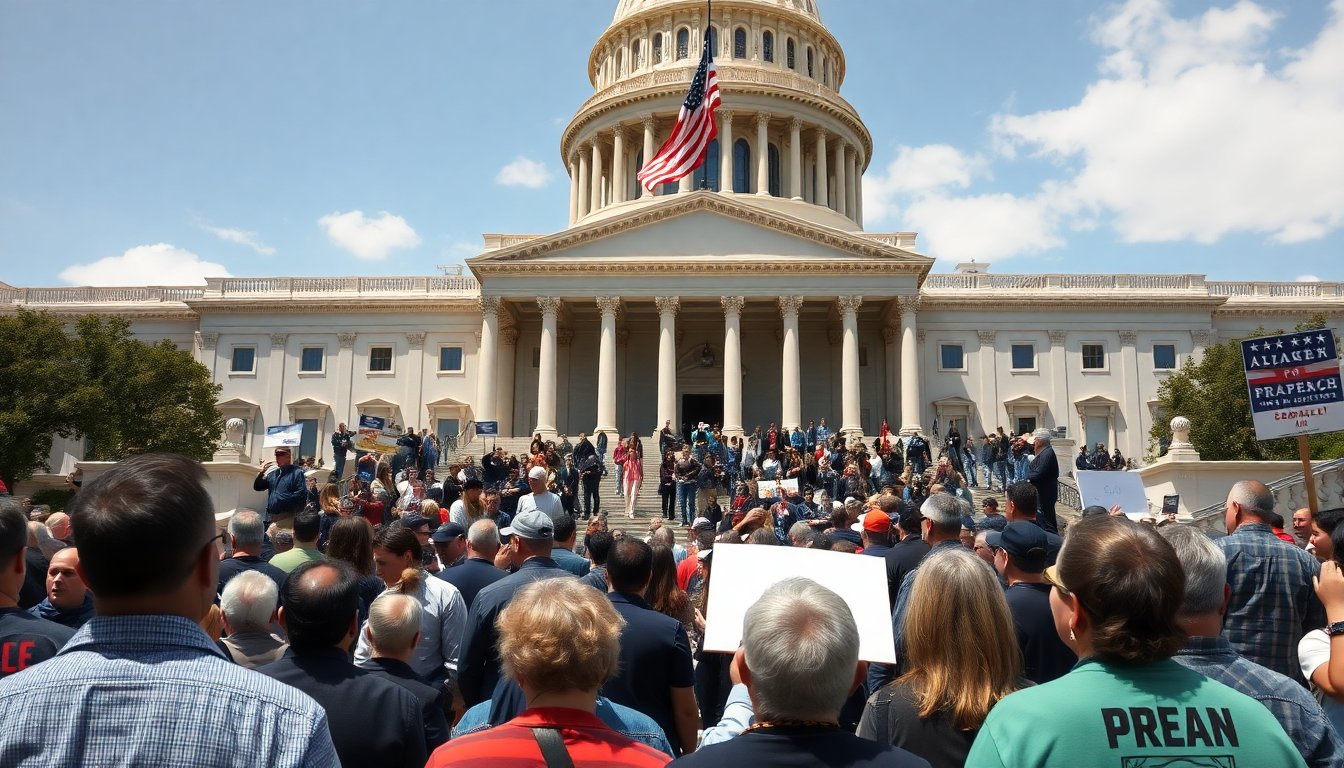Table of Contents
The federal government has entered a shutdown phase following a failure among congressional leaders to reach an agreement on funding measures. This situation arises from a protracted dispute regarding enhanced Obamacare subsidies, marking the first shutdown since 2019. As congressional members vacated the Capitol, uncertainty looms over the potential duration of this shutdown.
In response to the crisis, Republicans are advocating for a brief extension of existing funding for seven weeks. Conversely, Democrats are insisting that any agreement must include significant concessions concerning healthcare funding. As tensions rise, both parties are eager to shift blame, complicating negotiations further.
Political maneuvering in the Senate
On Tuesday evening, senators departed, leaving an atmosphere heavy with uncertainty about the effects of the shutdown. A Senate vote was anticipated for late Wednesday morning, focusing on the Republican funding proposal. GOP leaders plan to present this plan repeatedly until they secure sufficient support from Democrats. However, Democratic senators have made their position clear: they will not relent, even amid threats from President Donald Trump and his budget office, hinting at potential permanent cuts to government size.
Impact on working Americans
“This is going to be detrimental to working individuals,” expressed Senator Josh Hawley (R-MO) after Democrats rejected the proposed bill. He voiced concerns over the high cost to millions of Americans caught in this political standoff. The uncertainty surrounding the shutdown leaves both parties questioning how the situation will ultimately unfold.
As pressure mounts within the Democratic ranks, Senate Minority Leader Chuck Schumer faces the challenging task of maintaining unity among party members. With each day of the shutdown, the likelihood grows that some Democrats may yield to Republican pressure to support the short-term funding bill. Concerns within the party increase, particularly regarding potential long-lasting damage that could result from actions taken by the White House budget office during this time.
Democratic party dynamics amidst pressure
Amid these discussions, Senator Sheldon Whitehouse (D-RI) expressed his apprehension regarding the White House’s potential to cause irreversible harm: “Of course, who wouldn’t be concerned? We have a madman in charge.” He emphasized the need for Democrats to ensure accountability for the consequences of the shutdown.
Signs of division have emerged within the Democratic party, as two senators shifted their support to the GOP funding bill in the critical vote before the shutdown. Senators Catherine Cortez Masto (D-NV) and Angus King (I-ME), who caucuses with the Democrats, broke ranks, alongside Senator John Fetterman (D-PA), who has openly criticized his party’s strategies during this standoff.
Negotiation challenges and health care implications
Concerns regarding the enhanced premium subsidies, initially introduced as part of the Biden administration’s COVID-19 relief package in 2021, are intensifying. These subsidies made Obamacare more accessible, benefiting lower-income families and allowing more middle-class households to qualify for financial assistance. If these subsidies lapse at the end of the year, projections indicate that premiums could rise by an average of 75% in 2026, according to research from the nonpartisan KFF.
GOP leaders assert that some Democrats are eager to resolve the situation to prevent a prolonged shutdown. Senator John Thune (R-SD) noted that he is engaging in discussions with disgruntled Democrats, suggesting that there may be a desire among some to find a solution rather than prolong the standoff.
Consequences of the shutdown on federal services
The government shutdown will have immediate and extensive consequences, impacting hundreds of thousands of federal employees. Furloughs are expected to affect approximately 750,000 federal workers, who collectively earn around $400 million daily. Essential personnel will continue to report to work but will remain unpaid until the situation is resolved.
In response to the crisis, Republicans are advocating for a brief extension of existing funding for seven weeks. Conversely, Democrats are insisting that any agreement must include significant concessions concerning healthcare funding. As tensions rise, both parties are eager to shift blame, complicating negotiations further.0
In response to the crisis, Republicans are advocating for a brief extension of existing funding for seven weeks. Conversely, Democrats are insisting that any agreement must include significant concessions concerning healthcare funding. As tensions rise, both parties are eager to shift blame, complicating negotiations further.1


